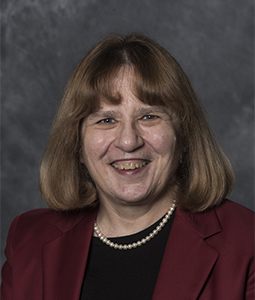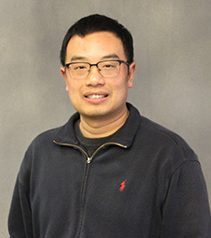AI for Sensing & Diagnosis Core
About the Core
The mission of the Artificial Intelligence (AI) for Sensing and Diagnosis Core is to bring together researchers with expertise in unambiguous single-molecule identification techniques, data sets of human plasma samples, and researchers in data-efficient AI algorithms to develop medical diagnostic tools such as metabolomics-based therapeutic drug monitoring device for ICU patients.
The AI for Sensing and Diagnosis Core’s responsibilities include: 1) Establishment of initial workflow to support data generation and analysis; 2) Demonstrate the application of Al for optimizing medical outcomes; 3) Contributing to the BDHSC’s efforts to assess, catalogue, and advance the healthcare-related data sets available to UofSC researchers; 4) Conducting education and outreach activities to connect infrastructure, data, analytic tools and data scientists and researchers
The AI for Sensing and Diagnosis Core is co-directed by Drs. Qian Wang (CAS) and Chris Sutton (CAS) and consists of strong expertise in biomaterials, nanomaterials, drug discovery, biosensing, and biosensor development. Please contact Dr. Wang at wang263@mailbox.sc.edu or Dr. Sutton at cs113@mailbox.sc.edu.
Research
The AI for Sensing and Diagnosis Core aims to foster the collaborative research activities in the forefront of biomaterials and nanomaterials sciences. Some ongoing research projects include: using the big data approach to develop bionanopore-based de novo protein/peptide sequencing techniques for clinical point-of-care applications; developing automation method to investigate cellular responses to different nanomaterials; nanomaterial catalyst for clean and environmental-friendly energy conversion and storage; and developing a rationale design platform for disease-modifying nanoparticles.
Consultation
Investigators of the AI for Sensing and Diagnosis Core have diverse content expertise in the area of nanomaterials and biomaterials research. We offer our assistance and consultation and potential collaboration to your research project or grant, or business development.
Training
The AI for Sensing and Diagnosis Core hosts a variety of seminars, courses, and workshops on bio/nanomaterials sciences for investigators and students across a broad range of disciplines. Please check the Events tab for more information and future event dates. You can also contact our Directors for course-related listings offered on the UofSC campus.
Membership

Qian Wang, Ph.D.
Core Co-Lead
The research in Wang group is divided into four distinctive but inter-connected topics: (1) chemoselective functionalization of bionanoparticles (BNPs); (2) self-assembly of BNPs towards materials development; (3) cell-recognition study with BNP-assemblies; and (4) fluorogenic reaction for protein imaging and recognition. All these researches point to one direction: to build three-dimensional programmable scaffolds that mimic the native extracellular matrices and can be used to probe the cellular activities.

Chris Sutton, Ph.D.
Core Co-Lead
Dr. Sutton’s research is focused on developing and applying computational approaches such as density functional theory combined with machine-learning methods to design, predict, and understand new and functional materials. He is an assistant professor in the Department of Chemistry and Biochemistry.

Susan Lessner, Ph.D.
Core Member
Dr. Lessner’s research interests center on the vascular biology and biomechanics of atherosclerosis, with an emphasis on intraplaque angiogenesis (new blood vessel growth) and mechanical failure (plaque rupture). Atherosclerotic plaque rupture is a leading cause of acute cardiovascular events such as heart attack and stroke. Evidence available to date suggests that plaque rupture results from an adverse interaction between biomechanical and biological factors.

Jie Li, Ph.D.
Core Member
Dr. Li’s research focuses on translating this vast chemical and biological potential into opportunities for drug discovery. His research approach is based on the opportunities that 1) a large number of unique microbial small molecules still await discovery, especially from underexplored microorganisms; 2) the exponential growth in microbial (meta)genomic data can facilitate the rapid identification of the biosynthetic genes that encode these interesting small molecules; 3) harnessing these biosynthetic genes can enable the construction of these small molecules in the laboratory; and 4) comparative metabolomics can further uniquely complement the (meta)genomic approach.
